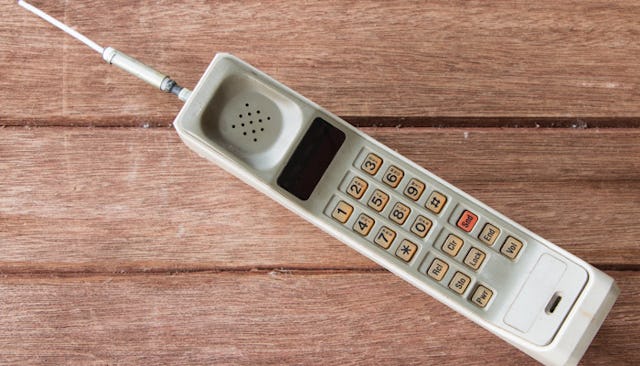5 Ways Technology Is Changing Childhood

Sometimes I wonder what my childhood would have been like if computers at that time hadn’t been magical, clunky boxes that only the geekiest of the smart boys used or cell phones hadn’t been the size of concrete blocks. I look at my son and his obsessive attachment to his iPhone, iPad, Xbox and laptop. I hear the seemingly endless little bing! of his texts and try not to put my head in the oven every time a random “Sweeeeet” or “Dude, no way!” comes from his Xbox Live sessions in the living room.
As much as I wonder how my childhood would have been changed by today’s technology, I also think about what our kids are missing. I know, I know, there are the standard, “Well, they’re missing the beauty of nature,” “They aren’t making real human connections” or “They aren’t playing outside” arguments against our kids’ mega-sized media consumption. But, what about the less obvious ones?
Today’s kids, tweens and teens aren’t getting to:
1. Invent intricately origami-inspired ways of folding plain old notebook paper. Remember those notes that you passed to your BFF during math class in middle school? I still have a box of them that I saved from seventh grade. To this day, I still can’t figure out just how we so artistically folded the paper into geometric little wonders. Sure, emojis are adorable, but texts aren’t exactly the same as old-school notes.
2. Use Wite-Out. Seems stupid, right? Wrong. The first time that I screwed up typing a high school paper was the first time that I used Wite-Out. Before that moment, I’d only seen my parents use it. Much like that first cup of coffee or first turn of the car key, it seemed like a rite of passage into adulthood. Pressing the backspace key doesn’t exactly have the same weight.
3. Be totally independent. Back in the day, when your mom dropped you off at the movie theater or mall to hang out with friends, she just had to assume that you were going to stay there and not sneak off to a party at a much older boy’s house (um, which none of us ever did by the way). She also had to wait by her home phone for a call that you made using a pay phone. Go ahead, ask your child what a pay phone is. Here’s the answer I got: “You mean like a prepaid cell phone?” Yes, I’m overprotective. And yes, when my son is off with his friends, I text him constantly. I suppose I could use the find-my-phone feature or my carrier’s locator function to GPS him any time that I want. In any case, the poor kid never gets to just be without being on my radar.
4. Not know things. Whether your kid is asking why the sky’s blue or who the fourth president of the United States was, what’s your response? My standard is, “Just Google it.” It kind of seems like the Internet has made all information available all of the time. There’s no leafing through encyclopedia volumes, paging through dictionaries or traipsing off to the library when you can just use a tiny computer—your smartphone.
5. Keep embarrassing photos private. Remember your family outing and vacation photos? Mom or Dad loaded up the camera (with actual film) and snapped rolls of pics. You had no idea how they turned out–unless you had a Polaroid–until your parents hauled the little film canister to the mall and dropped it off at Ritz Camera. Then you had to wait a few days (unless mom paid extra for one-hour processing) to see snapshots of your brace-face grinning next to an amusement park mascot or your terrifically teased bangs leading the way to Grandma’s house. If you didn’t want anyone to see the photos, you simply hid the album away. My horrendously embarrassing bat mitzvah photos, complete with a metallic pink party dress that resembled burnt kitchen foil, are still packed far, far, far away. Today’s kids aren’t so lucky. Facebook, Instagram and the ability to text a picture have taken away all embarrassment-prevention activities.
When it comes down to it, our kids are pretty lucky. They have a world of information in their hands (or rather, on their iPhones), they can keep in touch with those BFFs who move out of state without so much as buying a stamp, and they can even script, film and produce their own movies without needing a fancy film degree. That said, what’s all that compared to the joy of waiting a year and a half to finally rent your favorite Christian Slater flick (that’s young Gleaming the Cube Christian Slater and not old-enough-to-have-a-twentysomething-son Christian Slater) on VHS?
This article was originally published on